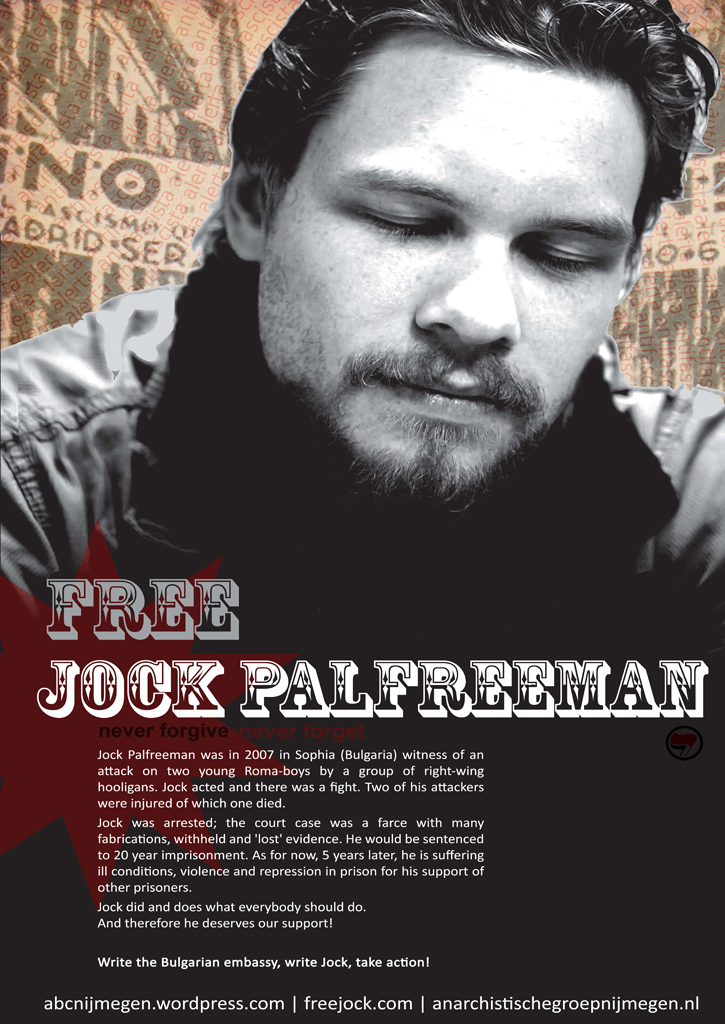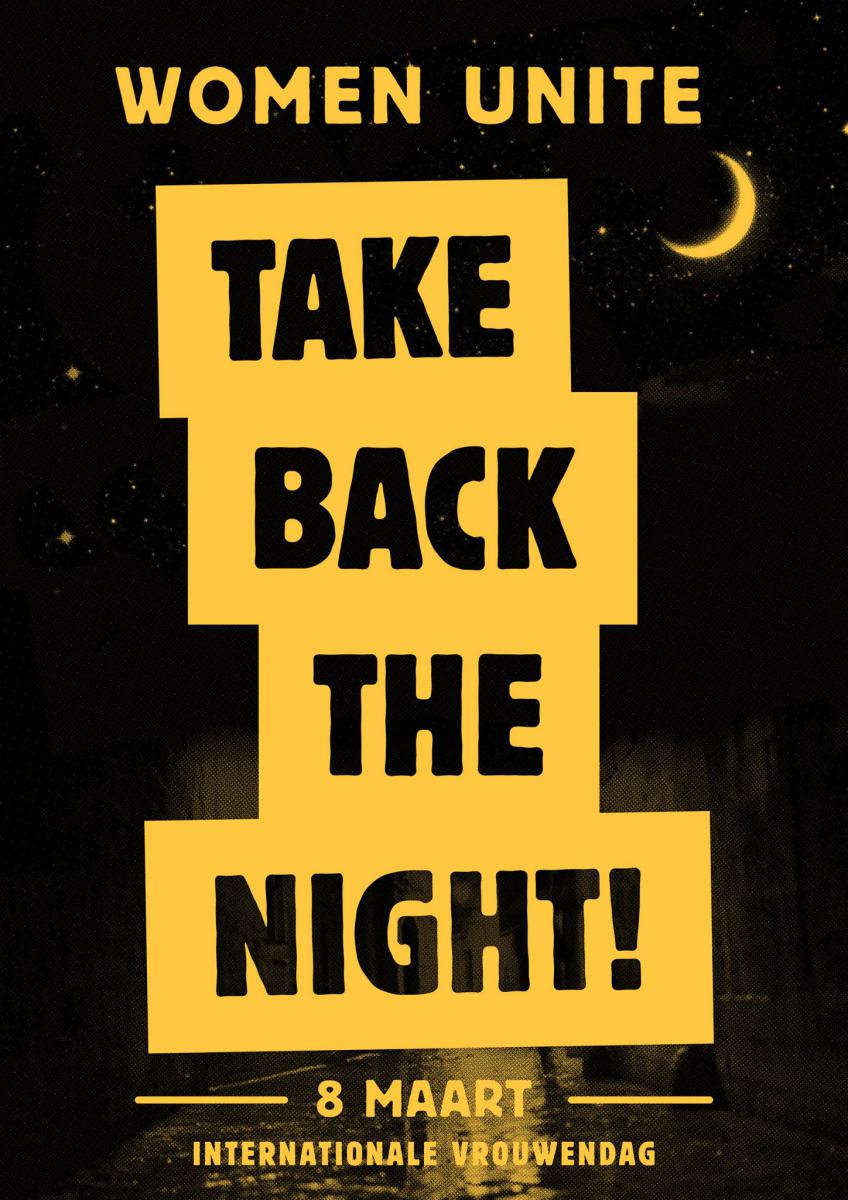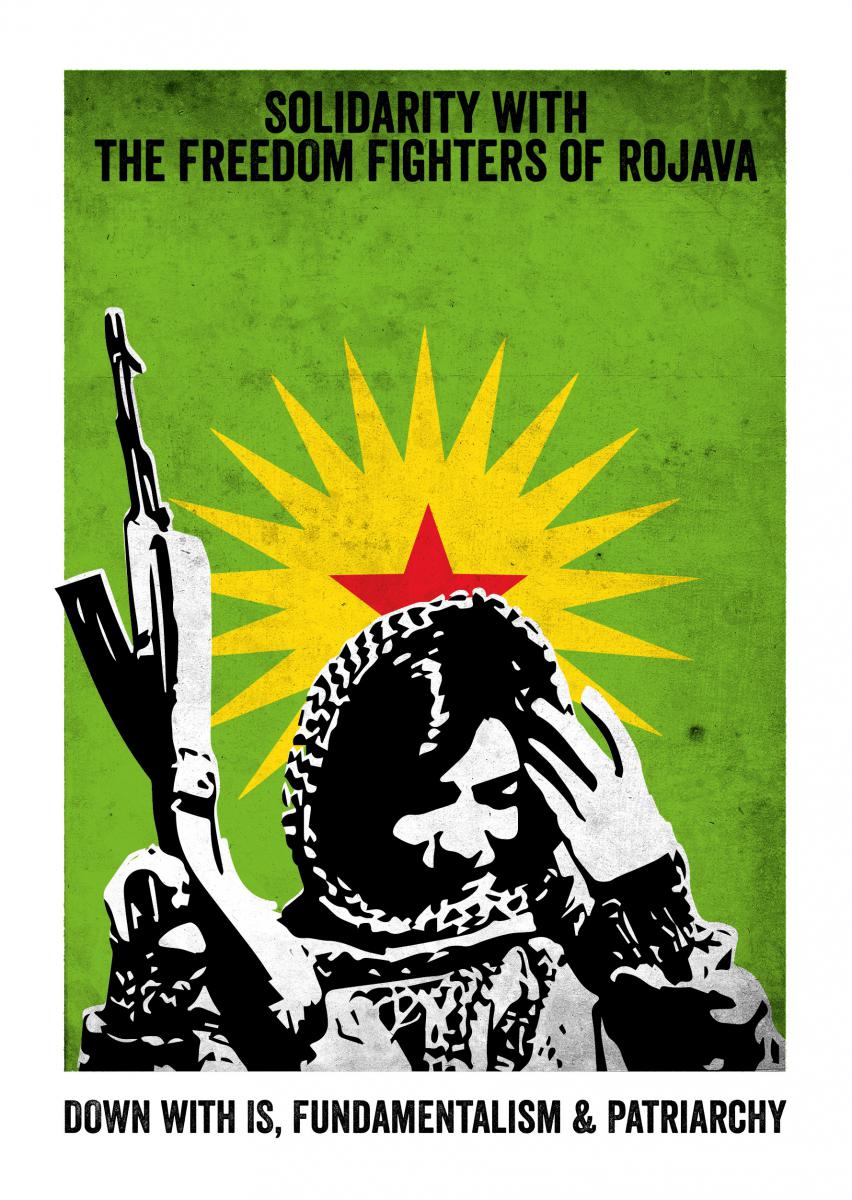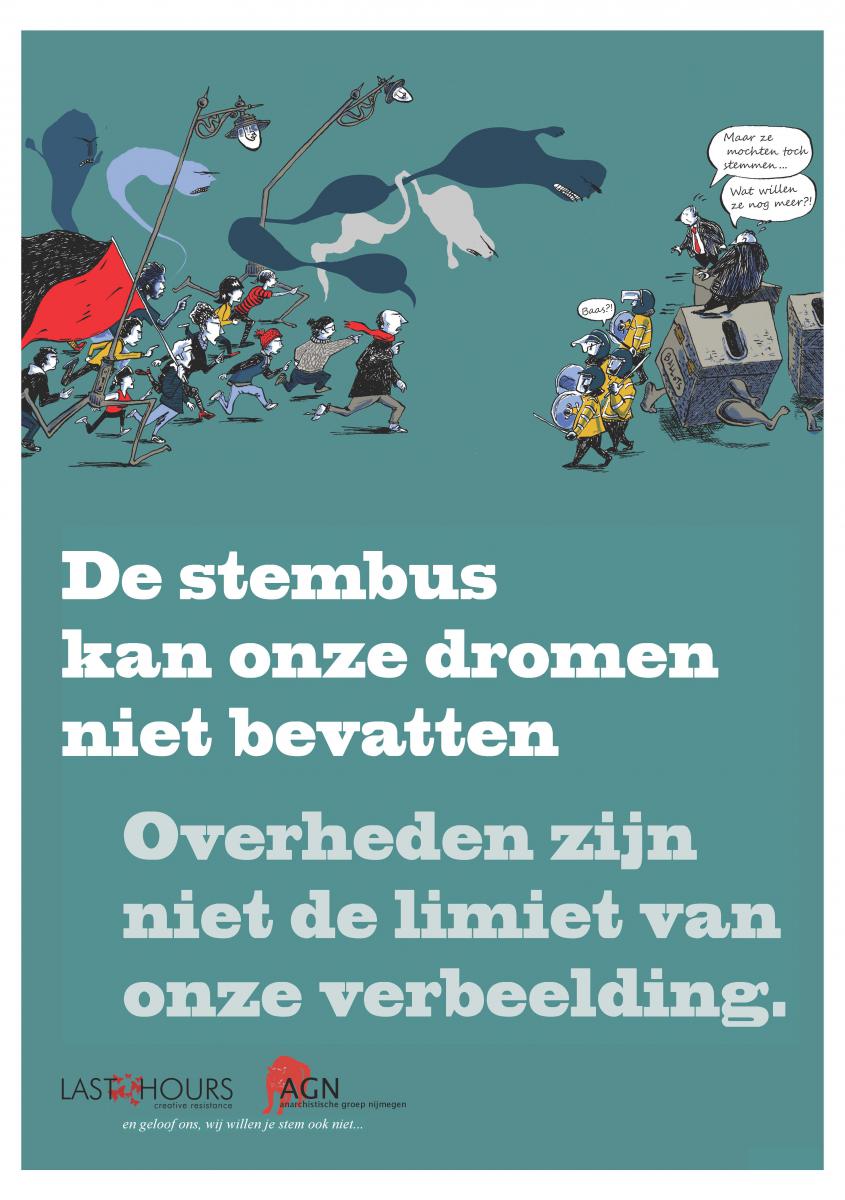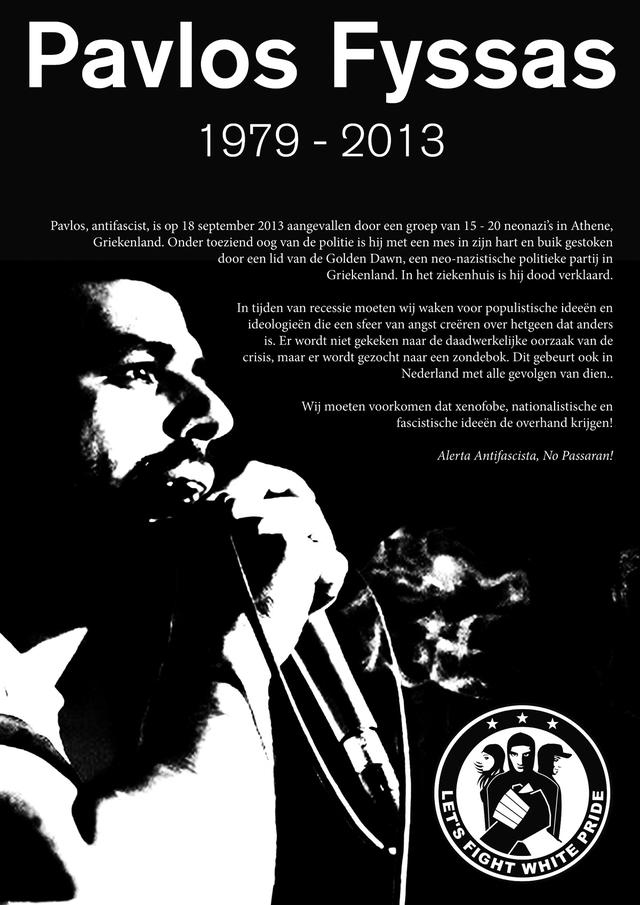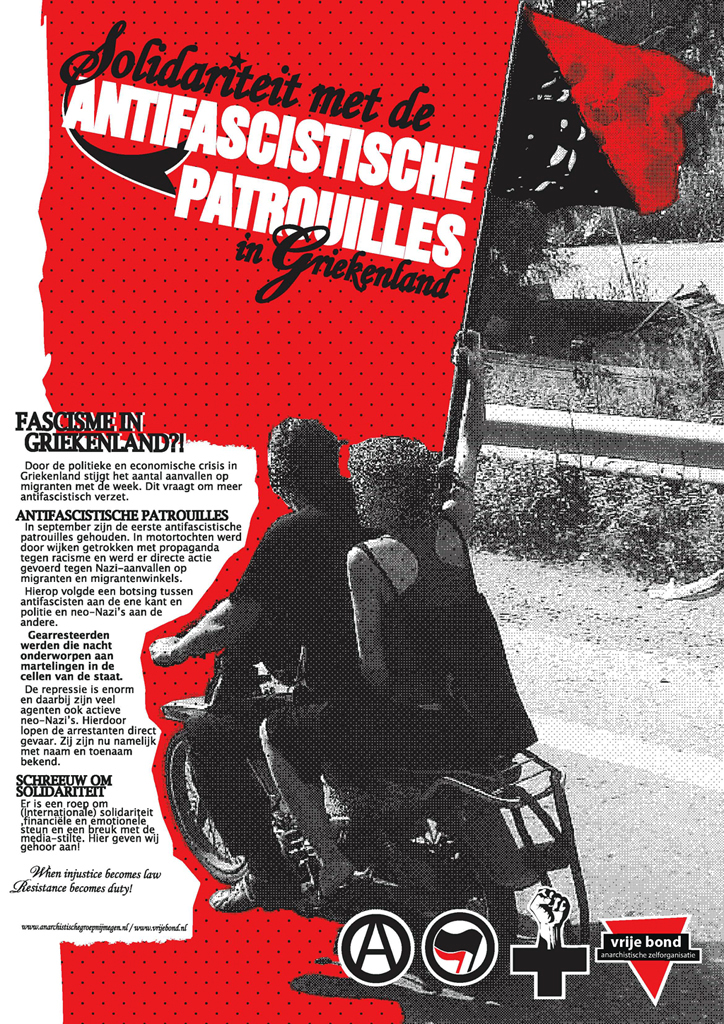Solidarity with the popular uprisings in North Africa and Middle East
On December 17, 2010 cracks began to show in the by the Western world powers cherished 'stability' in the Arab world. In Tunisia, there was civil unrest as a fruit seller set himself on fire while people took to the streets en masse to protest against the repressive dicator Ben Ali and his government. Food prices, low wages, lack of political freedom and a lack of perspective initially brought a few thousand people on the streets to fight for a better life. They had overcome their fears and defied the dictatorial police state.
Tunisia had always been the pet project of France and is currently one of the largest trading partners of the European Union in North Africa. The group of a few thousand demonstrators grew into a real uprising of the people that did not trust and settle with weak reforms or trusted promises. Within four weeks, and a fierce battle against the corrupt government they did not only took back the right to demonstrate, but ultimately even managed to make the president leave. This inspired people worldwide, especially people in the immediate region, where large sections of the population live under a similar dictatorial situation. The spark hit on to Algeria, Yemen, Jordan and Egypt.
Last Friday (January 27) after a few days of violent protests in Egypt a genuine popular uprising broke out. In response to brutal police violence of the days before, several police stations and government buildings, including the headquarters of the ruling party (NDP), were set on fire. In Cairo, Alexandria and Suez angry protesters that night drove the police out of the streets. The first battle was won. The next day there were reports of prison outbreaks, looting and general chaos within. The extensive attention to this in the Egyptian state media had the opposite effect. Mubarak's regime had gambled that people would desire back the ruiling power of the governing party. The flexibility and the will of the people, however, showed that it can be done differently.
Soon on both sides there were organized groups to protect themselves and took to streets and neighborhoods, young people were spontaneously regulating traffic. Some of these vigilante groups were organized by the rich, mainly aimed at keeping the impoverished looters from their posh submissions. Other militiamen are primarily aimed to ward off Egyptian police, silent agents and security forces from their neighborhoods and streets to keep them safe for the demonstrators. At this time, Tuesday, February 1, tens of thousands of people occupying the Tahrir Square (Freedom Square) after an afternoon of massive protests that at the top took 8 million people to the streets throughout the countryt. Also on the square was the unity and enthusiasm of the people visible. In a live broadcast by Al Jazeera that day testimonies from people came who told of the remarkable self-organization of the protesting people. Protesters spontaneously started to clean up waste and distributing food and water. At the beginning of the evening there even came a message that they made a water pipe to the square for protestors to make sure there was drinkingwater and they were able to wash themselve. All witnesses expressed their admiration for the self-organizing capacity of the masses.
Although the spontaneous uprising, there have been sound preparatory groups. Peter Storm said yesterday in his blog this:
"Just as good, the do is " leadership” ,called with a small ‘l’ ': there are networks, groups, and outside calls via the Internet and distribute them trying to give shape to the uprising. Important in this is the included ‘6 April Youth Movement’, which called for days of action by which the uprising started, on January 25. Among the demands of this group included not only the lifting of the emergency legislation and the departure of the Minister of Home Affairs, but also a higher minimum wage. The Guardian came up with a summary of a pamphlet from anonymous sources that went around in Cairo. It got people suggested slogans, preparations and mode of behavior on the actions itself and the like."
Striking about the riots that erupted in Egypt and Tunisia, and hopefully in other places, is that they have not really been claimed by an opposition. They are basically leaderless grassroots movements in which the protesters have no intention to take the power to govern over others. But to force it to be where she belongs: with the people! With the fake so-called transitional government and MPs that have pushed themselves forwards people haven’t agreed. The spontaneously emerging and by the Western media to "opposition leader" made El Baradei, is in Egypt mostly ignored by the population. It is of course the question whether this so-called power vacuum will be filled by the people, or a Western-style ‘ democratic’ party or a repressive organization like the Muslim Brotherhood. Time will tell. The U.S. and the EU will certainly hope to see another capitalist democracy on a Western model to see in countries like Egypt while Iran would prefer a strong Muslim state that can cope with the Western interests around the Suez Canal.
Western leaders are in a dilemma. First they are preaching about democracy and human rights, while Mubarak's human-rights- infringing dictatorial regime received $ 1.5 billion in annual military aid from the U.S.. For the EU the 'stable' regime was also good because of the strategic location of the Suez Canal and the large economic interests that were thereby constructed. The European Union now suddenly sees the beautiful vacation paradise dissolve like a mesh mirage before their eyes now real democratic movements in the region seem to rise.
We call our solidarity with the rebellious populations in North Africa, the Middle East and people around the world who want rid themselves of the Western power-backed puppet governments and dictatorships, and where they attribute their love for freedom and their fellow women/man. We hope that the flame will spread to many other places and that people will find the courage and strength to give shape to their future without interference by false leaders. Let these uprisings are an inspiration to us all!
Greece, Tunisia, Egypt, revolt is vital everywhere!
Anarchist Group Nijmegen
* In the coming days on our website will also be a deeper analysis of the history of the region and subsequent events appear here.
Below are some links to anarchist and libertarian groups in the breakaway regions:
Egypt: http://she2i2.blogspot.com
Jordan: http://anarchism-jordan.blogspot.com
Arabic libertarian blog (anarchists involved): http://www.arabawy.org



